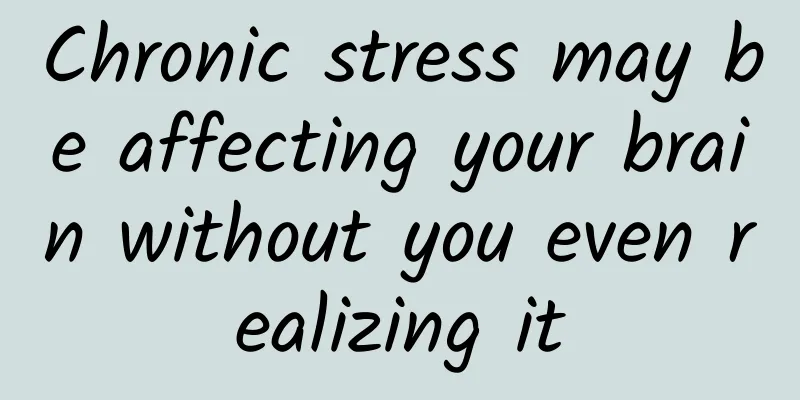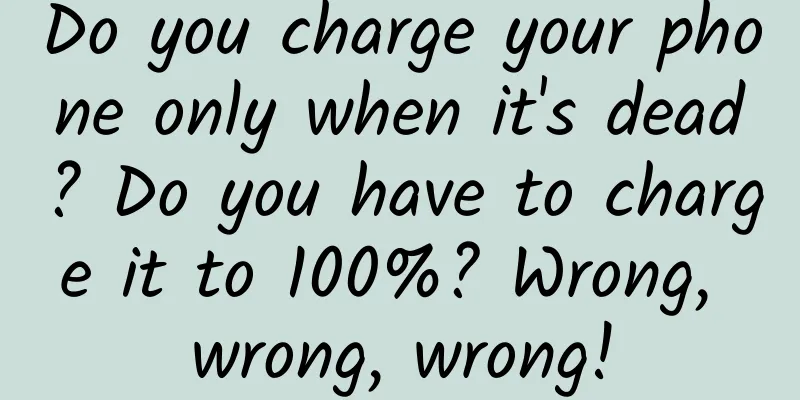Chronic stress may be affecting your brain without you even realizing it

|
Leviathan Press: In fact, compared with acute stress, the most terrifying thing about chronic stress is that the latter slowly changes your physical and mental health in an almost imperceptible way. After all, from an evolutionary perspective, moderate stress is a basic survival adaptation. Just as fingers touching fire will trigger pain, stress is also reminding your brain to some extent how to react and respond to the outside world. However, there is no clear threshold between chronic and acute stress, and the feelings of individuals under stress are not the same. This also leads to the fact that stress may be "one man's meat, another man's poison" to each person: one person's positive response to stress may not be completely suitable for another person. Stress is common in life, and oddly enough, it can do its best to help us avoid danger. But there’s a difference between acute stress, like that felt at work, and the longer-term chronic stress felt when in a toxic relationship , both of which can affect your health and well-being in the short or long term. For some people, that might mean sweaty palms and a racing heart, but for others, it could be stomach aches or depression. Mental health experts say that while everyone responds to stress differently, understanding how different types of stress affect you and how you feel can help you better cope with it when it strikes. “We all experience acute stress when our resources are stretched beyond what life demands,” says Lynn Bufka, psychologist and associate director of practice transformation at the American Psychological Association (APA). “But when your body is constantly activated to respond to stressors over and over again, it becomes more problematic for your long-term health.” What is acute stress? Acute stress generally refers to any short-lived event that "may feel overwhelming in the moment but will eventually resolve in some way, like unfinished chores or a crying toddler," Bufka said. According to the American Institute of Stress[1], there are two types of acute stress. One is “painful,” or negative experiences, like a fight with your partner or being stuck in traffic. The other is called “positive stress,” which has a more positive connotation, like planning a wedding or getting a promotion at work. However, any acute stressor triggers the same physiological response in your body, Bufka says, because your brain can't distinguish between fear (evacuating before a hurricane hits) and excitement (riding a roller coaster). Cortisol (shown in a polarized light micrograph) plays an important role in the response to physical and emotional stress. When you are chronically stressed, your body continues to release cortisol, which can damage your immune system. © Sidney Moulds In either case, your breathing may become faster, your muscles may tense, and your heart rate may increase as the hormones cortisol and adrenaline flood your bloodstream. This sympathetic nervous system response, commonly known as "fight or flight," can enhance your ability to solve the problem in the moment by boosting energy and alertness, Bufka says. The good news is that these symptoms tend to disappear soon after the stressor is removed. What is chronic stress? Chronic stress is when problems persist for months or years, or even for some people a lifetime, says Annette Stanton, professor emeritus and chair of the psychology department at UCLA. Stanton said situations that cause chronic stress tend to have a greater impact on quality of life and are often considered uncontrollable, such as racism, poverty, infertility or a terminal illness diagnosis. Sometimes acute stress can turn into chronic stress. For example, arguments with your partner may occur several times a day and eventually lead to divorce, which can have a knock-on effect on your finances, social life, and more. © Life Care Counseling Center Acute stressors, such as car accidents, can also be so traumatic that they become chronic stressors, says Tanya Spruill, a clinical psychologist and associate professor of population health at the NYU Grossman School of Medicine. Some people may develop acute stress disorder as a result, experiencing anxiety, helplessness, flashbacks, and nightmares that last for about a month.[2] Those whose symptoms persist for longer may meet the criteria for post-traumatic stress disorder (PTSD).[3] Chronic stress is easier to ignore because its symptoms develop slowly over time, Stanton says. That’s because your nervous system is constantly in fight-or-flight mode, releasing cortisol and other irritating hormones at a consistent rate. You may feel irritable, tired, achy, or depressed and have trouble concentrating or sleeping, among other symptoms. How does stress affect your health? It's no secret that stress, especially chronic stress, can lead to all sorts of health problems because your body focuses all its energy on dealing with the problem at hand. Like a car without brakes, you become exhausted. “From an evolutionary perspective, our stress system was designed to respond to severe, life-threatening situations, not the more chronic situations we experience today,” Stanton said. “So, for us to be in this state of heightened stress for a long time is going to take a toll on the body.” © University of California Anxiety, insomnia, and high blood pressure are common symptoms of chronic stress, all of which increase the risk of chronic diseases such as heart disease, diabetes, depression, and obesity.[4] Chronic stress can also lead to constipation or diarrhea, muscle pain, acne, low libido, painful or irregular periods, and pregnancy complications, according to the American Psychological Association.[5] Not only does stress weaken your immune system and make you more susceptible to illness, it can also affect your daily behaviors, further harming your health. You may eat too much or too little, lack motivation to exercise, or not get enough sleep and disconnect from family and friends. Or you may turn to alcohol and illegal drugs to numb yourself. “When we’re stressed out, we tend to focus all of our energy on those things and neglect to do the things that support our long-term health, which doesn’t leave us with enough energy to recharge or deal with the stress that we’re facing,” Bufka said. “It does become a cyclical challenge.” How to deal with acute stress? If you know something stressful is about to happen, such as a conversation about your resignation, mental preparation and mindfulness meditation are key. “Remind yourself that this moment will pass, that you have accomplished similar tasks in the past, and that you will be able to accomplish them again,” Stanton said. © The New York Times Pay attention to how you typically respond to acute stressors. If you frequently forget to eat, set an alarm on your phone to remind you to grab a snack, Stanton adds. If you tend to bite your nails, pull your hair, or engage in other body-focused compulsions, keep a gripper toy handy to prevent the behavior from getting out of hand. How to deal with chronic stress? When dealing with chronic stress, you should first focus on what you can actually control. Some situations, like being the target of racism, may not be “fixable,” but you may be able to eliminate chronic stressors in your life by making larger changes, like moving or quitting your job. Bufka notes that telling yourself things like “this is the worst thing that has ever happened to me” can unnecessarily amplify your stressors: “The more we say these things to ourselves, the more intense our experience of stress becomes.” © The New York Times Unhealthy responses are often subconscious, so practicing mindfulness through meditation at home or working with a mental health practitioner can help you "become aware of your behavior patterns so you can choose healthier responses," Spruill says. “Accepting discomfort and negative emotions as part of life is not about avoiding them,” Spruill said. “Mindfulness training can alleviate some of the pain. You still have those experiences, but they don’t hurt in the same way.” In some cases, medications, such as selective serotonin reuptake inhibitors (SSRIs), may be necessary to treat the range of symptoms associated with chronic stress. Additionally, experts recommend adjusting your lifestyle habits to match your goals: Eat nutritious foods, get enough sleep, exercise, and cultivate relationships with people you can talk to when you're stressed. References: [1] www.stress.org/daily-life [2]my.clevelandclinic.org/health/diseases/24755-acute-stress-disorder [3]www.psychiatry.org/patients-families/ptsd/what-is-ptsd [4]medlineplus.gov/ency/article/003211.htm[5]www.apa.org/topics/stress/body By Katie Camero Translated by tamiya2 Proofreading/tim Original article/www.nationalgeographic.com/premium/article/stress-acute-chronic-signs-health-risks This article is based on the Creative Commons License (BY-NC) and is published by tamiya2 on Leviathan The article only reflects the author's views and does not necessarily represent the position of Leviathan |
<<: Hearing the Voices of Our Cretaceous Ancestors from Our Middle Ears
>>: Rat head found in the cafeteria again? This time it's not...
Recommend
JDRead Review: Highly Cost-Effective E-book with Deep Localization Customization
As one of the few products in China that can comp...
Worth over one trillion! No. 1 in Asia! They discovered 4 world-class manganese mines in Guizhou...
On September 13, 2024, Zhou Qi, director of the B...
He overturned the "China is poor in oil" theory, and the Daqing Oilfield was born because of him
On the road of scientific exploration, countless ...
Who is suitable for taking a nap? Why do some people feel dizzy when they wake up, while others feel relaxed?
"I can't remember how long it has been s...
Why can Chinese people "eat melons freely"?
There has never been a lack of great women on the...
A weird physics puzzle of a cat falling from a height
© WGBH Leviathan Press: Several years ago, I hear...
The Operator Terminal and Application Innovation Cooperation Conference was grandly held on October 21
"4G promotion brings new opportunities for t...
It's about male reproductive health! In order to optimize sperm evaluation standards, Chinese scholars measured 1,856 sperm
What is “normal” sperm? On December 1, 2023, the ...
Reality is your brain's best guess
© Brain Latam Leviathan Press: We often joke abou...
5 marketing strategies for online and offline brands
Different types of brands engage in different for...
Yanling County Mini Program Franchise Company, how much does it cost to join a fresh food mini program?
How much does it cost to join a fresh food mini p...
No kidding! Xinjiang really produces seafood!
Xinjiang's seafood harvest is booming What ot...
Apart from a significant market expansion, what other benefits will the implementation of RCEP bring to China's home appliance industry?
In 2020, major events that changed the course of ...
Private domain marketing plan for the medical beauty industry!
In this age where looks matter, appearance anxiet...
The sales volume of new energy vehicles is expected to exceed 2 million this year, and Nezha ranks fourth after Wei, Xiaoli and Li Auto.
In recent years, driven by various factors, new e...

![Kotlin has become the new darling of Android after waking up [with code]](/upload/images/67ebd9aa1a69b.webp)







